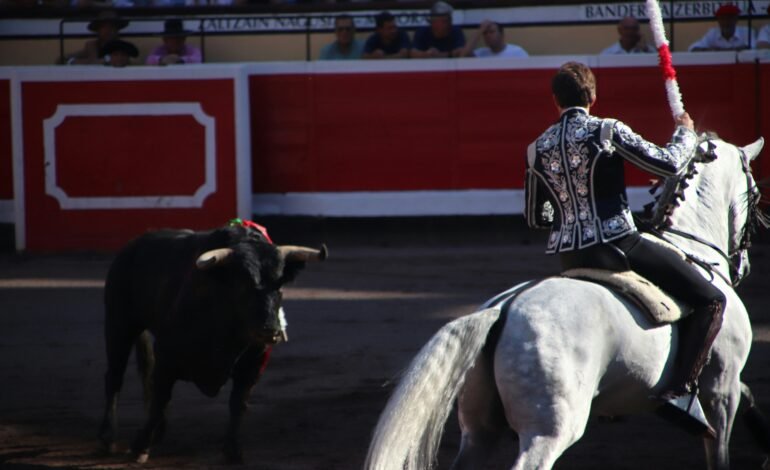Historic Legislation: Mexico City Bans Violent Bullfighting
Mexico City approves legislation to ban violent bullfights.

Image by Unsplash
The ban on violent bullfighting in Mexico City marks a historic milestone following a decision by local legislators. By an overwhelming vote of 61 to 1, a law was passed that eliminates the killing of bulls and the use of sharp objects, generating mixed reactions among animal rights activists and followers of this tradition.
A Cultural Change in the Capital
Last Tuesday, Mexico City took a significant step by banning bullfights, transforming a centuries-old practice into a bloodless spectacle. This adjustment seeks to balance tradition with the growing opposition to animal cruelty, sparking both celebrations and street protests.
The initiative, known as "bullfights without violence," not only prohibits the killing of bulls but also limits the time these animals can remain in the ring. Promoted by groups such as Culture Without Torture and Mexico Without Bullfights, the ban on violent bullfights is the result of years of debate. Mayor Clara Brugada, of the Morena party, supported the measure, highlighting that it transforms the capital into a place that prioritizes animal rights.
Reactions of Joy and Fury
The vote sparked mixed reactions. Animal rights activists flooded Congress celebrating, while matadors and supporters attempted to break through police barricades, carrying banners defending the "bullfight" as a source of cultural pride. Sofía Morín, of Culture Without Torture, celebrated the progress, stating that it is a major step toward protecting animals.
The Context of Bullfights in Mexico
Bullfighting, rooted in Latin American culture, has faced criticism for its violence. An estimated 180,000 bulls are killed annually in these practices worldwide. In 2022, a judge had already suspended bullfights at Mexico City's bullring, the largest in the world, arguing that they violated the right to a healthy environment. Although the Supreme Court reversed that decision in 2023, the current ban on violent bullfights seeks a compromise.
Economic and Cultural Impact
Bullfighting advocates argue that the industry generates $400 million annually and supports 80,000 direct jobs in Mexico, according to the National Association of Bullfighting Breeders. Fans insist that the death of the bull is an essential part of the tradition. However, legislators like Jesús Sesma of the Green Party (Partido Verde), assure that jobs are not at risk, as bullfights will continue, but without violence.
Keep reading More Latin for more news like this.
Fountain: NPR
